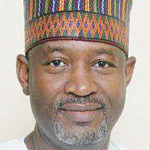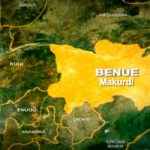Provide enabling environment for wastes conversion to wealth – Expert urges govts
January 24, 2018
 An environmental expert, Mr John Ekoko, on Wednesday urged local and state governments to provide the enabling environment for conversion of wastes to useful products at the community level.
An environmental expert, Mr John Ekoko, on Wednesday urged local and state governments to provide the enabling environment for conversion of wastes to useful products at the community level.
Ekoko, also a former Chairman, Nigerian Environmental Society, Lagos Island Chapter (NESLIC), gave the advice on Wednesday in an interview with the News Agency of Nigeria (NAN) in Lagos.
“Local and state governments are expected to encourage community developments by providing the enabling environment for the conversion of wastes at the local level to wealth.
“This will make it easy for people to come up with creative solutions for societal challenges,’’ he said.
According to him, it is better and cheaper to build small factories at the community levels than waiting to spend millions of naira to build gigantic ones in urban cities.
“There is a lot of biomass in the wastes being disposed of daily, as Nigerians have not yet imbibed the culture of separating wastes at the point where they are generated.
“At the government level, different containers should be provided for disposal of refuse, but these are not yet provided.
“The biomass waste can be broken down into smaller units to get energy, fertiliser and other raw materials; these should be community based projects.
“Mini-water treatment plants can be built at a particular point in the community and all domestic waste matters within the vicinity should directed to that place for recycling,’’ he said.
According to Wikipedia, free encyclopaedia, Biomass most often refers to plants or plant-based materials that are not used for food or feed.
Ekoko said that with small plants within the communities, wastes generated could be effectively treated and only those that could not be recycled would be taken to the dump sites.
He said the residue from agro-processing were cheap sources of fertilisers, adding that farmers could source their fertilisers from these wastes rather than continually seeking imported fertilisers from urban cities.
The expert added that the rice husks could also be used to generate energy with its residue serving as agro-processed nutrients for poultry and animal feeds.
He said that rice farmers could grow rice and allow the milling factories to mill it when it was harvested and treat the husks to generate energy.
“The mountains of rice husks around the milling factories, which are not being utilised for energy, are dismaying.
“The energy to be generated from rice husks alone is sufficient to power the milling machines, the factory offices and also provide electricity to the surrounding neighbourhoods,’’ Ekoko said.








